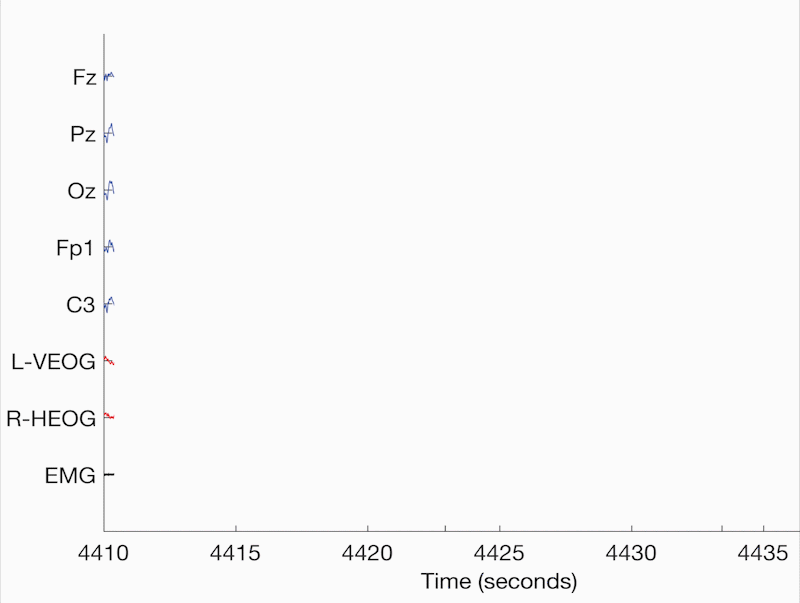A phone app on Google Play can help people have lucid dreaming.
Made by the Cognitive Neuroscience Lab at Northwestern University, the app Lucid Experiment allows users to play a sound and link that cue with awareness of their thoughts. Six hours later when the app plays the same series of beeps, it reactivates self-awareness in the person, causing them to become lucid in the middle of their dream.
According to the National Institutes of Health, lucid dreaming is beneficial because it enhances creativity and motor skills, treats nightmares, and decreases depression. It helps individuals feel empowered since they are able to control themselves, so they are no longer helpless victims of their thoughts.
Kevin Yang, a senior and the president of the Neuroscience Club at Carlmont, believes lucid dreaming boosts students’ sense of well-being.
“A lot of students have the same routine and activities every day, and life can feel boring at times. That boredom can spill over to impact their sense of direction or purpose in life,” Yang said. “But with lucid dreaming, I would imagine one waking up every day a little more excited and refreshed. I can see it boosting their well-being overall, which can then lead to boost academic performance.”
Researchers at Northwestern University tested the app with 19 people participating for one week. The study found that there were roughly 0.74 lucid dreams the prior week, but when the app was used, the number increased to approximately 2.11.
Karen Konkoly, a Northwestern cognitive neuroscientist, believed that was a massive jump.
“Lucid dreaming once a week is a lot,” Konkoly said.
Lucid dreaming is where individuals are aware they are dreaming. This happens during the rapid eye movement (REM) stage, where the brain is active, and eye movement and heart rate speed up.
According to ScienceDirect, 55% of people witnessed lucid dreaming at least once. In contrast, studies discovered that roughly 23% have lucid dreams once per month.
Lucid dreaming is extremely rare, and only a minority of people experience it.
“I would love to experience lucid dreaming because I bet it would feel like I’m in a video game or movie where exciting things happen. Waking up and feeling the contrast between the dream and reality would genuinely feel disorienting — like you just came back from vacation — but would be cool nonetheless,” Yang said.
While there are people like Yang who never experienced lucid dreaming, other people have.
“One of my friends dreamed that they were inside their house, but they suddenly realized that they were able to control the objects in their room and move them around like magic. They didn’t use any app to help them, but I think they did use a YouTube tutorial to help them enter a state of lucid dreaming,” Yang said.
In addition to Yang’s friend, sophomore Michelle Peng at Carlmont says she experienced lucid dreaming.
“I dreamed of an old lady with an old cottage in a very unsettling environment,” Peng said. “I realized it was a dream because I was driving a car and had a little monster on the passenger seat next to me.”
Lucid dreams feel realistic and cause people to see events flashing through their minds that aren’t happening in reality. For Peng, her lucid dream unfolded like a movie scene, and it even triggered her feelings.
“Since it was very dark outside, I was panicking because I couldn’t see much. Then I saw a yellow light in the distance, which was obviously that old lady’s cottage,” Peng said. “I drove my car up to the cottage and stopped in front of the dim house. I knocked on the door and that old lady came out. I asked her if I could stay for the night, and she said yes and happily took me to a random room with bunkbeds of straw.”
Lucid dreams can take place in many forms. It includes knowing that you are dreaming, controlling your dream, and manipulating your surroundings in the dream.
Peng didn’t use an app to have lucid dreams. She says that after years, she still remembers every moment of it.
“That dream was the most uncanny one in years. I remember it so vividly,” Peng said.
While there are other ways to lucid dreams — such as taking reality checks throughout the day, waking up mid-sleep cycle, and doing mnemonic induction — this app, which uses sensory cues, can be easier and has been proven to be effective in sleep studies.
While it may seem strange, lucid dreaming does contribute to success, even at school.
“Lucid dreaming increases activation in the prefrontal cortex, which is a brain area responsible for attention and decision-making abilities for a student’s success,” Yang said. “If lucid dreaming uses the prefrontal cortex more, it’s very likely that the neural connections there would grow stronger, and therefore increase students’ ability to stay focused and make informed decisions.”













